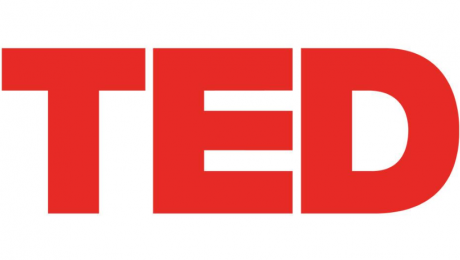Finding the Perfect TED Talk for You
By Alison Riggan
With over 3,000 TED Talks available, finding the right one may seem like a daunting task. You don’t want to make it through half a talk just to realize that particular episode doesn’t interest you. You can search by topic but with main 20 categories and even more sub categories, it can be easy to become a bit overwhelmed. I love listening to TED Talks throughout the day (especially during data entry!) but I found I was spending too much time trying to find the right topic. That’s when I stumbled upon the “Which TED talk are you?” quiz. It’s only six questions and recommends a specific video based on your answers. The video that was suggested to me was “The story we tell about poverty isn’t true” and I really enjoyed it! To find the right TED Talk for you, simply take the short quiz and enjoy!
- Published in Blog
Is there a place for April Fool’s Day in the workplace?
By Ashley Snodgrass
Spring – the season of more sunlight, March Madness, St. Patrick’s day, and glorious winter breakup. At the peak of Spring, there is a polarizing holiday that can cause a lot of drama and trauma in the workplace: April Fool’s Day.
So, here’s a good debate for you: Is there a place for April Fool’s Day in the workplace?
Most guidance suggests that not all pranks are bad for the workplace, but the culture of the company is most important. There are some cultures who welcome playful, creative pranks. However, if your company culture is very professional and traditional in nature, pranks are likely to be unwelcome.
When considering if pranks are appropriate, also keep in mind that any pranks or jokes must not discriminate or harass the recipient. One piece of advice I particularly thought was helpful, is to consider if the prank would be remembered fondly a year from now?
On one hand, some employees find pranking a unique way to build camaraderie and laugh together with coworkers. Pranking can promote team-building as members of different departments conspire to plan and execute a joke on an unknowing victim. Pranking can be a funny way to relive a joke with coworkers. For example, I was gifted a Crap Taxidermy calendar by my coworkers one day after I expressed my horror and general discomfort surrounding taxidermy.
Oppositely, pranks may turn mean-spirited – damaging trust between teams, ostracizing team members, and lowering the level of professionalism in the workplace. Pranks can also be heightened by power dynamics, gender roles, and the truth that often times what one person may think is funny, the next person may not think is funny.
SHRM published a list of helpful do’s and don’ts that may guide your attempts at pranking this April Fool’s Day:
Do’s
- Any joke should align with company culture or mission.
- The audience of a joke should be considered. April Fools’ is not the ideal time to pull a prank on a new co-worker. If an employee chooses to prank, the worker should choose a joke that will be well-received. If the company culture is serious, the employee should think twice about proceeding with any prank.
- All possible outcomes should be thought through. A would-be prankster might maybe even run the joke by a third party to get an opinion on whether the joke is funny or appropriate for the workplace.
Don’ts
- No jokes should focus on an employee’s race, gender, age, disability, religion, national origin, sexual orientation, sexual identity or other protected status.
- No pranks should interrupt an employee’s ability to complete his or her job or interfere with a deadline.
- No jokes should be physical. There should be no physical contact or injury.
- No pranks should cause damage to property or the company’s reputation.
- No jokes should suggest someone has been terminated or demoted.
I’ve compiled examples from one of my favorite work-place blogs Ask A Manager where employees write in with a question or topic, and the blog author responds with her advice. I’ve compiled some prank and April Fool’s Day related posts below:
My Workplace Pulled A Mean April Fools Prank On Employees
My April Fools Prank Backfired
I Pulled A Prank On A Coworker — And It Ended Badly
My Boss Is Furious After My Coworker Pranked Her
An Office Prank Ended In Injury
My Employees Played A Horrible Prank On A Coworker — What Do I Do Now?
My Team Sent Me A Bag Of Garbage While I Was Recovering From Surgery
My Coworker Signed Me Up For A Racist Organization As A Joke
Pranking A Coworker Who’s Afraid Of Clowns
And if you’re still not sure if you’ll be leaving pranking out of the workplace, here are a few ideas to get your brainstorming off on the right foot.
- Published in Blog
Are you unmotivated at work? Take time to take this quiz and you definitely are!
By Jennifer Outcelt
You’ve seen those click bait quizzes online while scrolling through Facebook, right? You know, the ones that will tell you what breed of dog you are based on your zodiac sign and what you ate for breakfast, or tell you what color underwear you are wearing based on your street name and favorite popsicle flavor. You’re aware that these are all BS (by the way, I’m a collie and the color is blue), yet you still waste your time giving the stupid side of the internet more attention than it deserves. So what does it mean when you are spending too much time on the web during work hours? I’d take a look at your motivation.
Now, I’m not going to tell you that there’s never a time or place for meandering through the news or scrolling retail sites looking for the perfect “Add to My Bag” item. I will tell you, however, that the time and place is NOT from 9 to 5 Monday through Friday at your work desk. I certainly enjoy the occasional yodeling cat video a coworker sends over, but when it comes to work motivation, the time I spend online indirectly correlates with my level of motivation. The more motivation, the less useless surfing. Makes sense, right? If you feel that your job has purpose, that you make a difference in your company’s efficiency, that you respect the time you are being paid to work and in turn are respected for that time given, then I would say you are likely a motivated employee… and likely don’t compose snarky tweets to burn @realDonaldTrump during work.
You might be thinking, “But, Jennifer, I really need that 15 minute break from the emails just to zone out. And it’s so much easier to book my doctor’s appointment online from my work computer!” If you are taking a short 15 minute internet break once or twice a day, I’m not too worried about you (especially since many jobs are required to give workers two 15 minute breaks). I’m focused on the people who are spending an extra 1 or more hours a day on non-work related web use. That adds up to a net of 5 or more hours a week… Over half a day of work, gone! Vamoose! Out the window! If you are spending that amount of time online during the workday, you might want to look closely at why you are losing your motivation.
Here are some common questions I would ask, and my response to your hypothetical “yes”. Are you bored or disengaged from your work? Then talk to a supervisor about how you can work on projects that are more meaningful. Worst-case scenario, this is just not the job for your talents. Are you completing your work so fast that you’ve run out of things to do? False… there is always something to do! It’s great you are so quick, now be a team player and find a way to help someone else. Or start a project to help the whole company. Or just clean! Clean spaces make for clear minds. Do you think your time is worth more than they are paying you? It could be… but most likely it is not. Regardless of what your time is worth, every minute you spend not working is essentially stealing. People who steal think they deserve the things they take; they don’t. It’s dishonest. Stop. Do you think that the things you are doing online are more important or time sensitive? Simple… They’re not.
I might come off as an internet Nazi, but my real goal is to avoid the TRUE internet Nazi’s from taking over. Every day companies implement technology to track how their employees are spending their time. What sites do they visit? Nope! Can’t go there! How long are you online? That’s too Long! Shut it down! How often are you typing? Not often enough! Must not be working! And who can blame these companies when there are people out there that are stealing productive time from them. All I’m saying is that if you want to maintain your internet liberty (and your coworker’s respect), you have to be cognizant of how your motivation might be affecting your work life/internet life balance.
- Published in Blog
A Roadmap to Choices
By Alesha Combs
We are officially a quarter of the way through the year! So how are those new year resolutions going? I’m just kidding, I won’t put you on the spot like that. This year, along with many others, I decided to ditch the resolution and try something new. Instead of a resolution I decided to do an intentional assessment of the prior year. I wanted to identify the things that enhanced my life and the things that weighed it down, so that in the new year I could seek out the good and avoid the bad. It sounds so simple, right? Well, I suppose if it were actually that simple the self-improvement industry would not have made $9.9 billion in revenue last year…
So I was faced with the question of where to start my self-evaluation process and how to achieve the fulfillment that I desired in my work, personal life, and relationships. Personally, I’m not interested in indulging the self-help industry, so that is not where I look for answers. I find the energy I spend reading and understanding a $30 self-help book leaves me too exhausted to actually make the changes they tell me to make. But 2 weeks into the new year, as I’m still pondering the clearest route to my best life, a local speaker hits me with three small nuggets of wisdom that rang so true I’ve been simmering on them ever since (Bonus! They cost me $0):
- Influence requires involvement.
- Proximity brings perspective.
- Consistent communication builds confidence.
Everything in life is up for interpretation, so let me explain the truth these words held for me. They gave me a way to assess all my past and present opportunities. Not necessarily to identify good choices versus bad choices, but a clear guideline for defining the value of the choices I had made in the past, and a tool to purposefully add value to the choices I would make in the future. His words were like a roadmap:
- Do you want to be influential? If so, what are you doing with your time? You cannot influence the manifestation of valuable outcomes if you do not take the time to involve yourself in the process. You have to show up; you have to show you care.
- Your investment of time requires you hold close proximity with others who can help you build your perspective. Everyone has a different perspective, it’s their platform. What is yours? Are your choices allowing for positive growth and a valuable change in your perspective and insight? Or, are you judging without understanding the perspectives of those around you?
- Your proximity impacts who you communicate with, and your perspective impacts the way you communicate. Have you spent enough time being involved and building perspective to be confident in what you know and say? What about your confidence in what you hear from others? Is what you are communicating adding value?
I’ve been able to apply these concepts to many different pieces of my life, but let’s be honest I’m sharing this with you from my work desk, so we’ll just focus on how these philosophies have changed my career focus and the way that I work. The influence I hope to achieve directly determines the training I choose to pursue, the meetings I choose to attend, and the time I choose to set aside for each task I complete. These choices in how I spend my time shifts my proximity to others, and as I extend outside of my comfort zone I gain an insight that I would have lacked from within the confines of the familiar. These insights help me understand the perspectives of coworkers and clients alike, paving the road to clearer communication and understanding. The result is an increase in my engagement and a boost in my confidence, all because I decided to invest the time to make valuable choices based on a simple road map.
Growth is a confidence booster, but you don’t grow without action. Behind each action is a choice and an intention, so choose mindfully. I’ve already said it, but I’ll say it again, everyone has a different perspective, what I’ve written here is just mine.
- Published in Blog
Generational Differences in Your Workforce
By Tiffany Stock
Our office recently presented to the Northwest Human Resource Management Association for about three hours, providing a comprehensive overview of employee benefits and the role of the HR professional in providing them – don’t be too bummed out you missed it, because I’m going to give you a little recap on my favorite part of that presentation. While the whole presentation was important in discussing the big picture, and breaking down the economic, environmental, political and technological components that affect employee benefits, the most interesting part to me was the social side of things and really looking at generational differences in the workplace, which frankly for me translates into both my professional and personal life.
Let me start of by saying that I am a millennial based on the defined years by most sources I could find and it was really hard for me to say that, possibly due to the psychological stigma that is portrayed when hearing people talk about millennials. More on that later.
Regardless of what generation someone is “classified” in, every person comes from a different background, may have different values, expectations, motivations and priorities – this is on top of things people may have in common just based on the genre in which the “grew up.” There are 5 generations in the workplace in the U.S.:
Majority:
- Baby
Boomers (1946-1964) ages 73-55 – <29%
- Generation X (1965-1980) ages 54-39– 1/3rd of the workforce/ <34%
- Millennials (1981-1997) ages 39-21 – Largest demographic of the employed +34%
Minority:
- Silent
Generation (1928-1945) ages 91-74 – 2%
- Gen Z/Post Millennials (1998-2001 start date, ages 20-18) – also referred to as “Digital Natives” – 1%
Baby Boomers are the fastest declining generation, and held about 49% of the workforce back in 1995 (think season 5 of Beverly Hills 90210 – RIP Luke Perry). They are working well past normal retirement age and think some of that may be due to some big retirement plan losses during the Great Recession.
Generation X, which is caught in the middle of the Baby Boomers and Millenials, were born during a time when Americans were having fewer children, so it’s thought that generation has likely hit its peak in the workforce around 34%.
Currently Millenials account for around 53 million workers, but that is expected to surge up to 75 million workers at its peak as many young millennials are still in school. It’s also the largest group sector due to our immigrant population where more than half of newly arrived immigrant workers over the last 5 years have been Millenials.
Thinking about the signature products that were developed during each generation really put in to perspective how each of these groups “grew” up. The Silent Generation brought us the automobile, the Baby Boomers had the television, Generation X’ers had the first personal computers, and Millenials brought tablets and smartphones.
There are a lot of stereotypes for each generation – Boomers are often thought of as rigid in their ways, and selfish. Millenials are thought to be social media crazed narcissists, resistant to hierarchy, and eternally uncertain about their career decisions. Gen-xers are thought to be slackers. These stereotypes are short sited and create fractured work environments. The reality is that many of these generations were similarly perceived when they first entered the workforce based on their era. They are a lot more alike than you’d think.
When having different generations in the workplace, my research showed that there are three main commonalities amongst all – every employee wants respect, recognition and feeling part of a team. If your company has a wide range of generations, it’s definitely something to look into and understand a little better to create a happier work environment. Taking into consideration the different ways to communicate, utilize technology, ensuring your company offers benefits that appeal to different needs and an emphasis on the type of employee-employer relationship they might be looking for, can go a long way.
This portion of our presentation lasted 15 minutes, so as you can imagine there is a lot more I could say, but for the sake of everyone’s time, I mean a blog is a short read not a novel, I’ll wrap it up with these final words. Everyone is different, no matter their age and gender, while there may be some commonalities amongst certain groups of individuals, get to know your people and learn from them – it will only make your organization stronger!
- Published in Blog
The Employee Experience Platform: A New Category Arrives
By Andrew Kupperman
About 75% of business technology implementations fail to achieve the goals established before an organization decided to purchase technology. One of the main goals that is common across organizations is providing employees a better experience at work. This particular goal can tend to have a low success rate.
I’ve discussed in other blog posts that technology is merely a tool to attain this goal. If your organization has the cornerstones of sound strategy, buy-in at all levels, and a support structure, then you are going to be more likely to succeed. But why is this employee experience so important? And how is the workforce technology industry changing to accommodate the ultimate employee experience at work?
I’ve seen Josh Bersin, formerly of Deloitte, speak a few times now about the change in the way we work. Every time I get a better and clearer sense about why this is such an important topic, so I wanted to share one of his recent articles about what’s happening in the workforce tech industry to tackle the employee experience conundrum.
- Published in Blog







